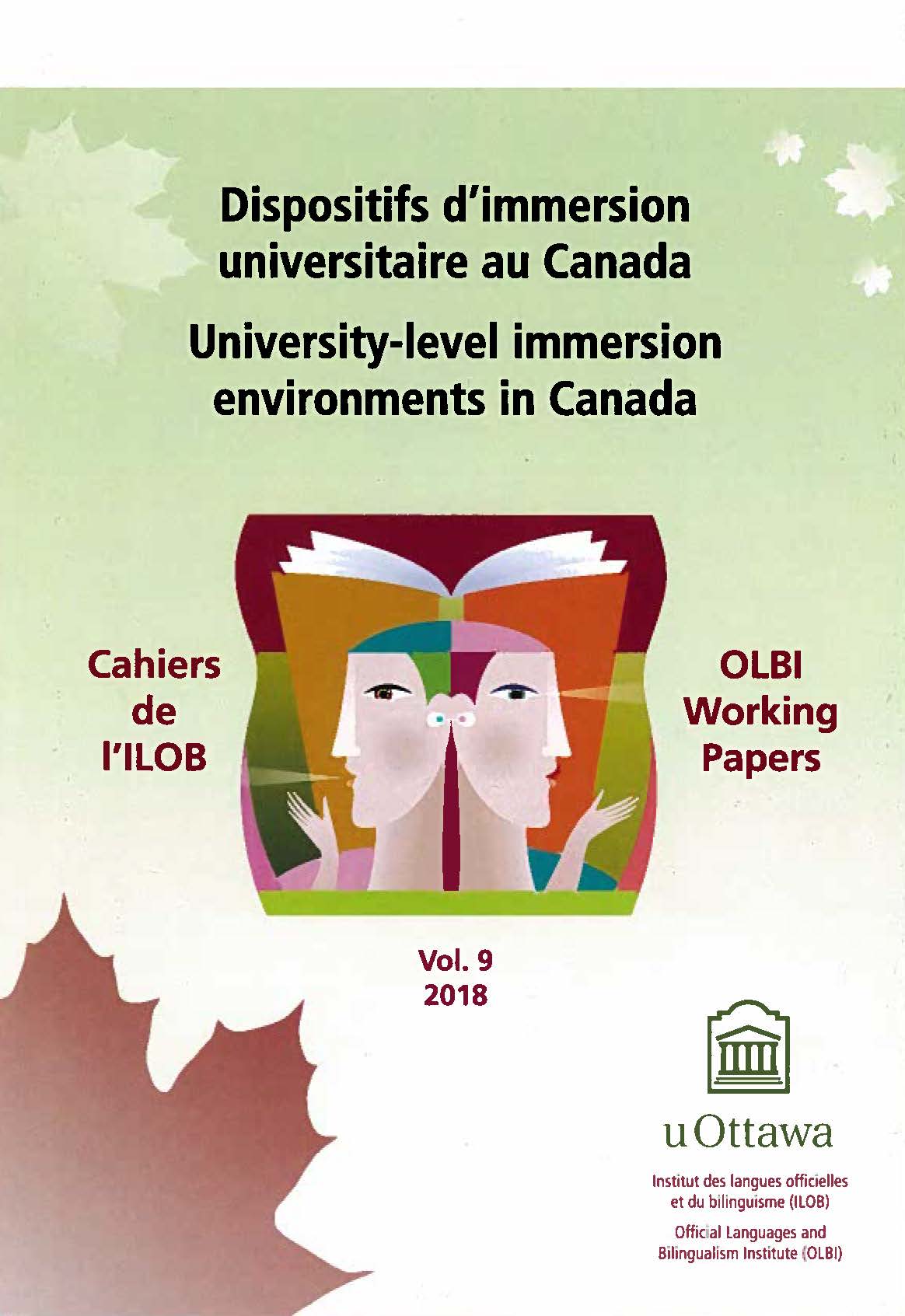Lessons learned from immersion in western Canada’s multilingual and multicultural post-secondary context across the disciplines
DOI :
https://doi.org/10.18192/olbiwp.v9i0.2340Résumé
The current educational context in post-secondary institutions world-wide is characterized by a widening participation agenda, and is greatly impacted by trends in globalization and internationalization (Burbules & Torres, 2000, Ilieva, Beck, & Waterstone, 2014). This multilingual and multicultural educational context brings about many opportunities and challenges for students, faculty, and other internal and external stakeholders (Arkoudis et al, 2012; Hafernick & Wiant, 2012; Murray, 2016). Given Canada’s increasing involvement in offering programs predominantly in English to international, transnational, and bi/plurlilingal domestic students, it is important to examine the lessons learned from Canada’s history with immersion (Cummins, 1998). and consider the implications for the post-secondary context (Knoerr, et al. 2016). To that end, it is perhaps time to reconsider language education policies, re-examine how language is used as a medium of instruction, redesign curriculum and instruction, as well as understand how students’ bi/plurlingualism can serve as an additional resource for learning across the disciplines (Camarata, 2016; Coste, Moore & Zarate, 2009; Cummins, 2007; Marshall and Moore, 2013).
This article describes the educational development and scholarly activities of a Centre for English Language Learning Teaching, and Research at a comprehensive university in British Columbia, and shares emergent findings of a case study and pilot projects in which faculty in applied linguistics/language education collaborate with faculty across the disciplines to support students’ English language development alongside their disciplinary knowledge and literacy skills at the curricular, instructional, and assessment levels. Key practices and approaches in university French immersion education will be compared and contrasted with Content-based/‘CLIL’ and plurilingual approaches used by language education faculty working alongside disciplinary faculty in order to support students at the curricular core within programs where English is the language of instruction.
Téléchargements
Publié-e
Numéro
Rubrique
Licence
Les auteurs qui publient avec Les Cahiers de l'ILOB acceptent les termes suivants:
- Les auteurs conservent le droit d'auteur et accordent à la revue le droit de première publication, l'ouvrage étant alors disponible simultanément, sous la licence Licence d’attribution Creative Commons permettant à d'autres de partager l'ouvrage tout en en reconnaissant la paternité et la publication initiale dans cette revue.
- Les auteurs peuvent conclure des ententes contractuelles additionnelles et séparées pour la diffusion non exclusive de la version imprimée de l'ouvrage par la revue (par ex., le dépôt institutionnel ou la publication dans un livre), accompagné d'une mention reconnaissant sa publication initiale dans cette revue.
- Les auteurs ne soumettront pas simultanément le même travail pour publication à plus d’une revue spécialisée à la fois.


